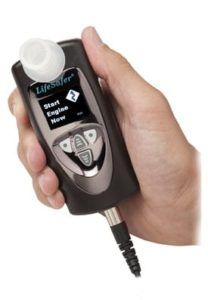 Oddly enough, the controversy over ignition interlock devices seems more polarizing than the actual effects of drunk driving. Too many people are okay with a person who has a DUI that doesn’t cause harm to others or damage property. Some even see it as a right of passage into adulthood. An ignition interlock device? Well, that violates a person’s rights. Right?
Oddly enough, the controversy over ignition interlock devices seems more polarizing than the actual effects of drunk driving. Too many people are okay with a person who has a DUI that doesn’t cause harm to others or damage property. Some even see it as a right of passage into adulthood. An ignition interlock device? Well, that violates a person’s rights. Right?
Wrong. Ignition interlock devices end up protecting the rights of others on the roads. Those who want to make it home safely.
Recent research shows that mandatory ignition interlock requirements reduce fatal drunk driving crashes by 7%. The devices work by preventing a person who has even the smallest amount of alcohol in their system to drive an interlock-equipped vehicle. Studies show that ignition interlock devices prevent up to 90% of all subsequent drunk driving incidents, including those where a person sustain lifelong injuries, or where property is destroyed entirely.
Ignition interlock devices also do more than prevent more drunk driving accidents and arrests. The devices allow convicted offenders the freedom to maintain their jobs, home, and family obligations. Having that independence, even if measured by the breath tests that are submitted to the device, is vital for a person’s ability to rehabilitate after a DUI conviction. The rate of rehabilitation (those who never have another DUI again) for offenders with an ignition interlock device is greater than those who must sit out a license suspension or those with extended jail time.
Ignition interlock devices save the lives of drunk drivers and those on the road who could be harmed or worse during an intoxicated ride home. They also save the lifestyle of an offender who very innocently felt they were okay to drive, only to find out they were way above their limit before heading home. Violating a person’s personal choice to drive while intoxicated isn’t a violation, it is a safety measure that we continue to rely on each day.

 Why Do I Need a Certified Oklahoma Ignition Interlock Service Provider?
Why Do I Need a Certified Oklahoma Ignition Interlock Service Provider?